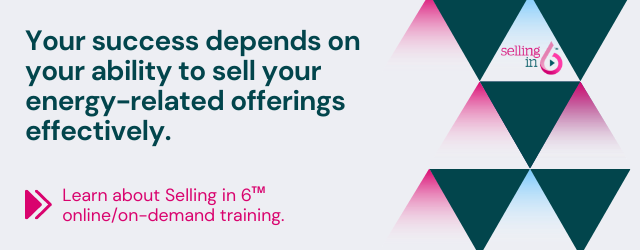Business acumen training for salespeople is key. Why is that? I believe the reason is twofold.

First, you need to understand what is driving your prospects to make decisions. What are the business drivers? What are they looking for and how are they going to evaluate any financial investment you place in front of them?
Second, you have to understand how price discounts affect your own company’s bottom line. What impact do they have on margin? What is the relationship between that contemplated lower price and the fixed and variable costs of your product or service offering?
Speaking of profitability, I often hear the question, “Does energy efficiency enhance profitability?” The answer, of course, depends on many factors. You cannot answer this question without asking an even more basic one: “What percentage of your overhead is energy?” In my business, energy is less than a quarter of one percent of revenues. However, if my company were in the business of smelting and forming aluminum, energy would be a very significant portion of our overhead. There’s a very big difference in cost structure. You can look at a company’s profit and loss statement to see how big of a line item energy really is and what impact it might have on the bottom line.
There’s a second question that I think is even more important – particularly if energy is not a large portion of your prospect’s overhead: “Are there other non-utility-cost financial benefits of embracing energy efficiency in your operations – perhaps from a marketing or productivity perspective? Alternatively, does enhanced efficiency hold the potential to move the needle on another gauge that you’re watching closely, such as embedded energy cost per widget produced?”
Bottom line, business acumen is a very important concept, whether you aim to increase the profitability of your prospect’s business or your own!







